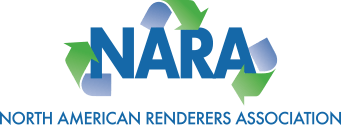During these trying times as the nation faces the novel coronavirus and the illness it causes, many of us are making decisions about what’s essential in our lives. Most will likely find our essential priorities are similar: safety, shelter, access to health care, and sustenance like food, water, pet food, and basic supplies.
When we take a step back and look at the big picture, we can see that certain industries and services are essential on a national scale as well. Firemen, police officers and first responders are trying to keep us safe, medical professionals are treating illness, and grocery, convenience store, and food delivery workers are making it possible for us to get supplies like food for loved ones, including our pets.
The list of essential industries goes on, but we want to take a moment to thank everyone on the front lines in an essential position. YOU are heroes!
Thank You.
Let’s look at who else is essential. American agriculture feeds many of these essential workers by growing and producing crops and livestock needed to make our food and pet food.
Last week, the U.S. Department of Homeland Security included Rendering as part of Food and Agriculture on the “Essential Critical Infrastructure Workforce” list. That means rendering is an essential industry for our nation.
Put simply, if rendering stopped, meat agriculture would be paralyzed, and pets and livestock would lose valuable nutrition in their food.
Renderers collect and upcycle the parts of the animal that Americans choose NOT to eat into valuable protein and fat ingredients for pet food and animal feed.
They also collect and treat waste used cooking oil from restaurants for use as a feedstock needed to produce biodiesel and renewable diesel. The biofuels industry is on the nation’s “Essential Critical Infrastructure Workforce” list.
As rendering plants will continue to remain open, we want to reassure our readers that the rendering industry and the rendered products they produce remain safe through this pandemic.
- Rendering plants are legally required to be clean and sanitary – Cleaning and sanitation of all rendering plants is required by the Food and Drug Administration under the Food Safety Modernization Act. This federal law regulates the way food is grown, harvested and processed for safety.
- Rendered products are safe from the novel coronavirus due to high temperature cooking – The rendering process ensures this dangerous virus cannot be present in its ingredients used in animal and pet food even in the extremely rare instance it could be present in the raw materials used to produce this food.
Heat kills pathogenic viruses and bacteria quickly at high temperatures. The novel coronavirus is killed in a few minutes at 50 – 70 °C (122°-158° F).
The rendering process is accomplished at temperatures of 115º–145ºC (approximately 240º–290ºF) for 40 to 90 minutes depending upon the type of system and materials. There has never been a documented case of an animal disease outbreak caused by viruses or bacteria from rendered animal by-products.
We at NARA hope you are safe, wherever you are.
To maximize your safety during this difficult time, click the helpful links below for information from the World Health Organization (WHO) and The Center for Disease Control (CDC).
We are all in this together. Your safety is essential. Your loved ones’ safety is essential, and the safety of your food, and your pets’ food is essential.
Helpful Links
• COVID-19 Q & A (WHO)
• How Long Does the Coronavirus Live on Surfaces? (WHO)
• How to protect yourself from COVID-19 (CDC)
• Cleaning and Disinfection for Households (CDC)
To learn more about COVID-19 and the rendering industry here.

